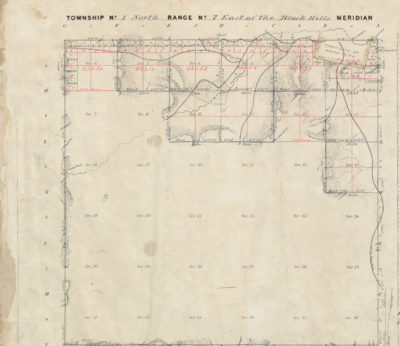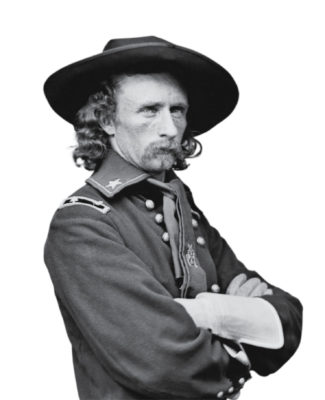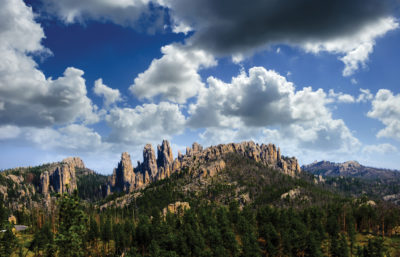 This week’s GLO Record features a survey plat displaying Rapid City, South Dakota. Rapid City, named for the limestone spring stream that passes through it, was founded in 1876 by a group of disheartened prospectors that had come to the Black Hills in search of gold. John Brennan and Samuel Scott, along with a small party of men, laid out the site of present-day Rapid City.
This week’s GLO Record features a survey plat displaying Rapid City, South Dakota. Rapid City, named for the limestone spring stream that passes through it, was founded in 1876 by a group of disheartened prospectors that had come to the Black Hills in search of gold. John Brennan and Samuel Scott, along with a small party of men, laid out the site of present-day Rapid City.
Survey Plat
The city can be seen in the northeast part of this township plat for Township 1 North Range 7 East of the Black Hills Principal Meridian, which was approved on November 15, 1879.
Black Hills Expedition

George Armstrong Custer. Photographer: Mathew Brady (died 1896) and his field staff, Public domain, via Wikimedia Commons
The Black Hills Expedition, led by Lt. Col. George Armstrong Custer, was a United States Army expedition in 1874 to explore the previously uncharted Black Hills of South Dakota and investigate their natural resources.
It was during this expedition that gold was discovered in the region. This 1874 discovery of gold in the Black Hills brought droves of settlers to the region, each hoping to strike it rich.
Founding and Growth
Not everybody who came to the Black Hills region was lucky enough to strike gold, but one group of failed prospectors found another opportunity in the large river valley situated between the Black Hills and the plains. Its central location made it
a good place to sell supplies to the area’s miners and homesteaders.

The Pinnacles, a rock formation at Custer State Park, South Dakota. © Bonnie Fink / shutterstock.com
The city’s prime location made it a convenient transportation hub. Initially for wagons and stagecoaches, the settlement became a waypoint for rail traffic following the completion of the Fremont, Elkhorn, and Missouri Valley Railroad in 1886. The city’s founders advertised their community as the “Gateway to the Black Hills,” a moniker still in use today as Rapid City is a destination for tourists drawn to the region’s natural beauty.